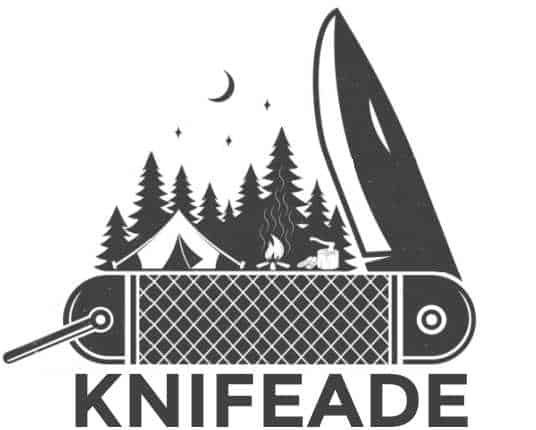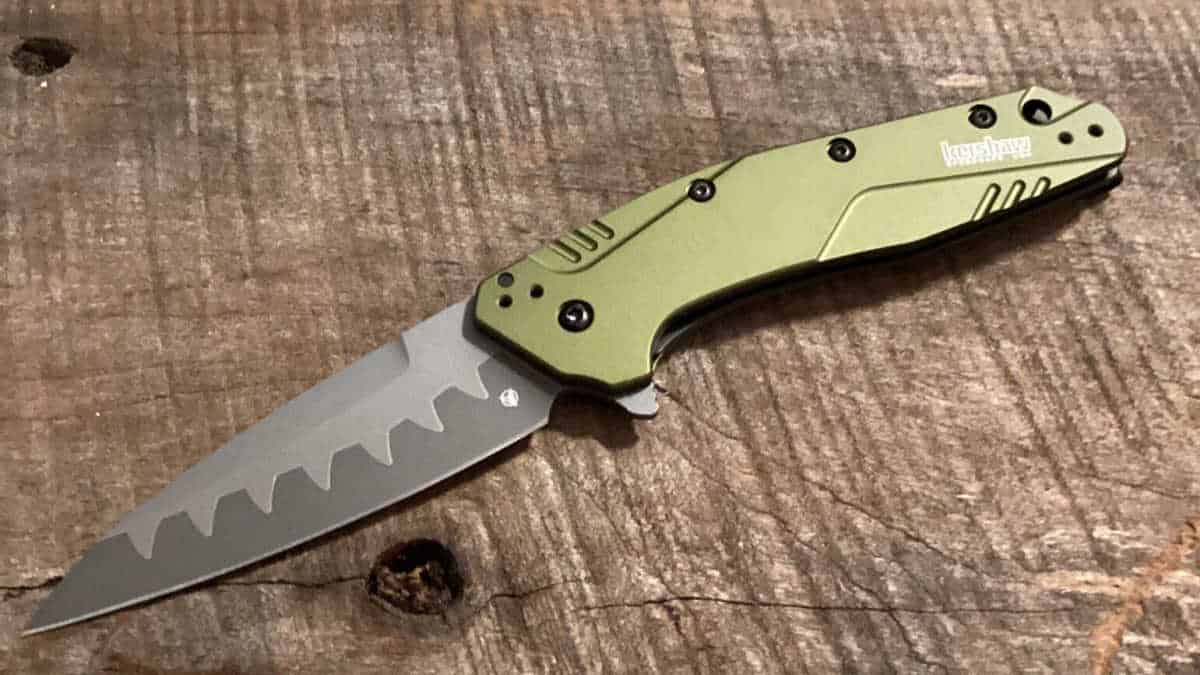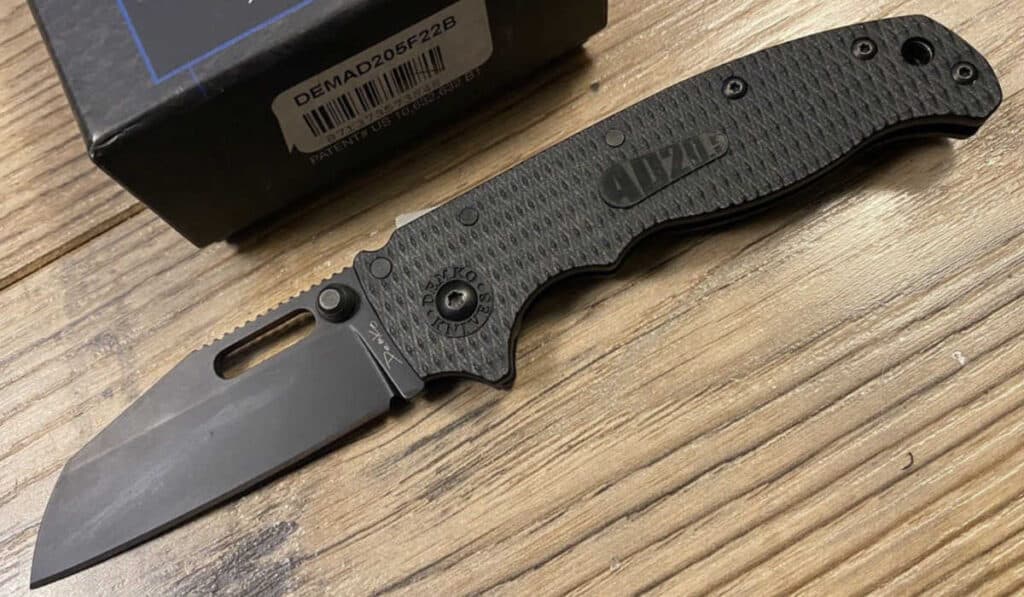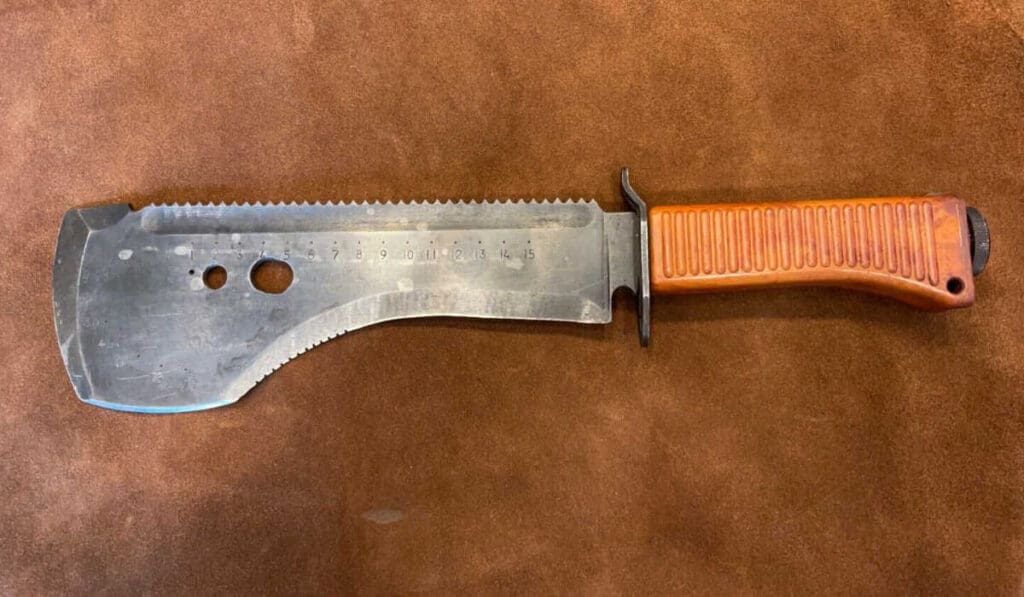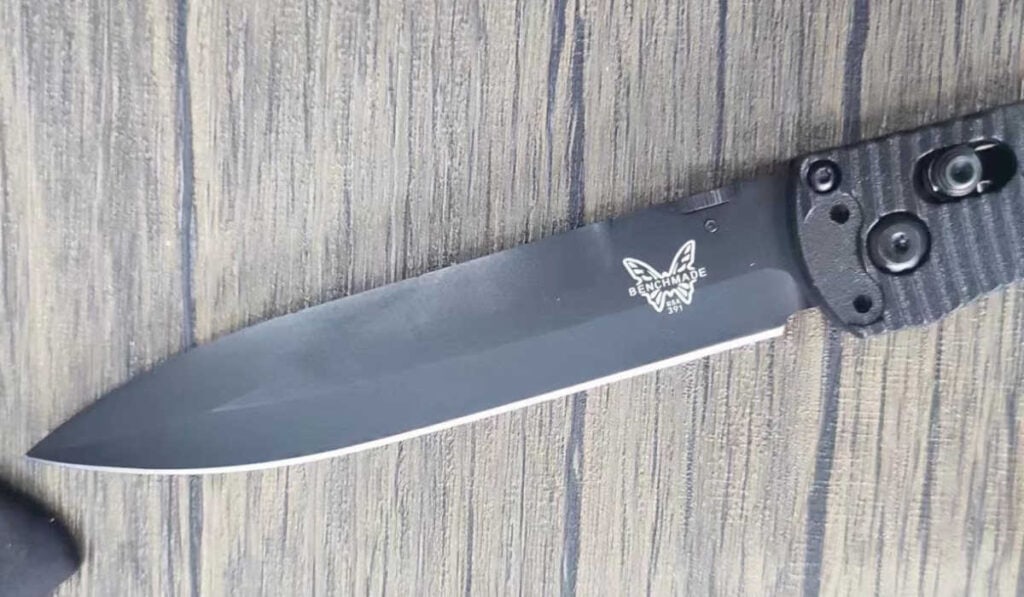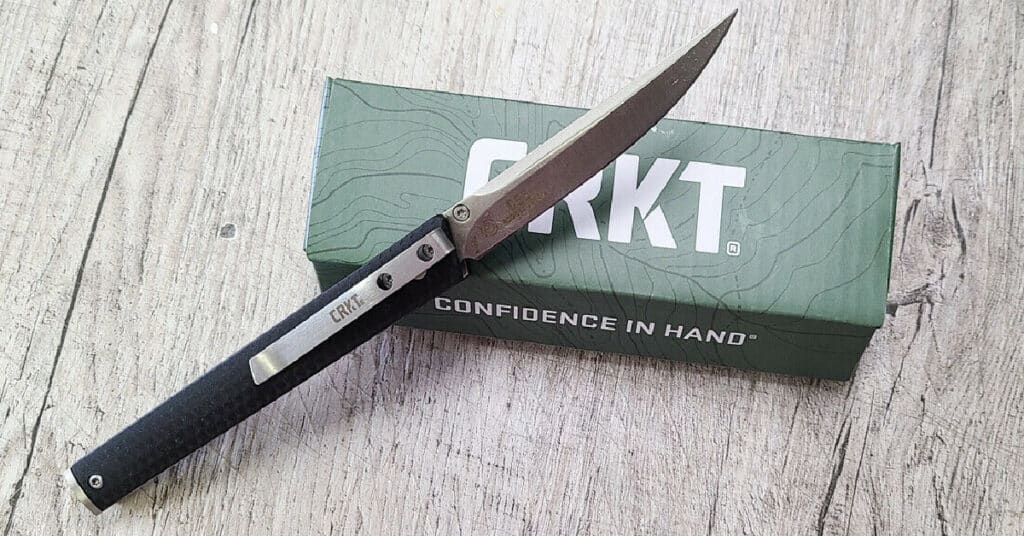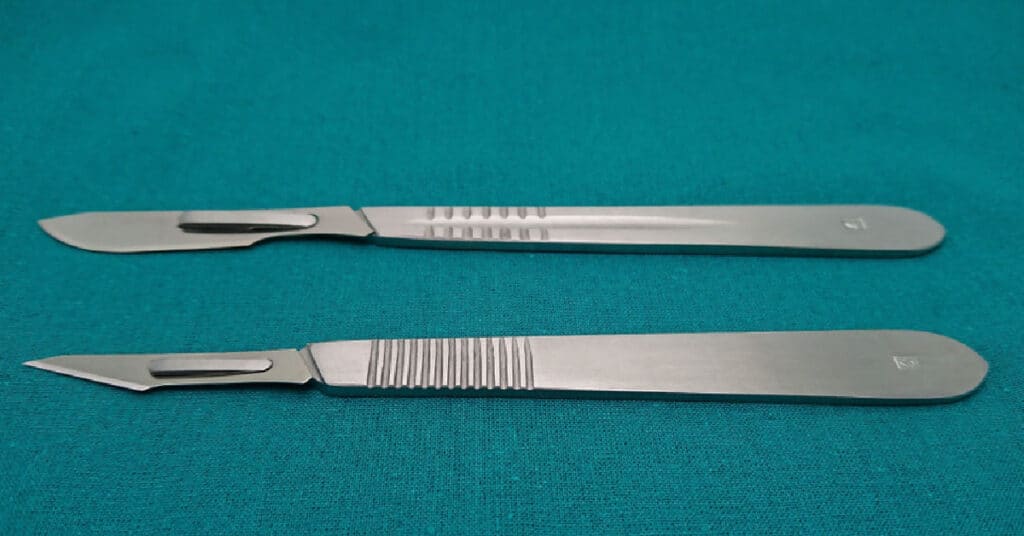Last updated on July 14th, 2023 at 02:37 pm
As an Amazon Associate I earn from qualifying purchases.
N690 steel is a premium-grade, cobalt-enriched stainless steel crafted by Bohler, an Austrian steel company. This high-quality steel is known for its carbon and chromium content, with an added touch of cobalt, which enhances its consistency. Designed to meet the demands of various applications, N690 steel has earned a reputation for being an excellent choice for knife blades.
Boasting high levels of toughness, durability, and corrosion resistance, N690 steel is well-suited for outdoor knives, kitchenware, automotive trim, and building materials. Its high carbon content allows for impressive hardness and wear resistance, while the presence of chromium ensures stability against rust and corrosion. Thanks to its balanced properties and performance, N690 has become increasingly popular, especially among knife enthusiasts and collectors.
As the market offers a wide variety of steel grades and materials, understanding the properties and performance of N690 steel can help you make an informed decision for your next knife purchase. With its impressive balance of hardness, edge retention, and corrosion resistance, N690 steel is undoubtedly a top contender in the world of high-performance blade materials.
My Favorite Knife That Uses N690 Steel
N690 Steel Composition
The N690 steel is a high-quality stainless steel known for its excellent edge retention, corrosion resistance, and toughness. It is a popular choice for making knives and other cutting tools. The composition of N690 steel consists of several elements, which contribute to its performance and characteristics.
N690CO Variant
The N690CO variant of N690 steel is an even higher-performance version, which contains cobalt in addition to the other alloying elements present in regular N690 steel. Cobalt enhances the steel’s hardness and overall performance. The typical composition of N690CO steel includes:
- Carbon: 1.07%
- Chromium: 17%
- Molybdenum: 1.10%
- Manganese: <1.0%
- Vanadium: 0.10%
- Silicon: 0.40%
- Cobalt: 1.50%
The addition of cobalt sets N690CO apart from the standard N690 steel and offers improved edge retention and hardness. In particular, the high chromium content not only enhances the steel’s hardness but also contributes to its excellent corrosion resistance. The presence of molybdenum increases the steel’s strength and toughness, while vanadium promotes wear resistance and toughness by refining the steel’s grain structure.
The inclusion of manganese aids in the hardening process, and silicon contributes to the overall strength of the steel. Together, these elements work in synergy to make N690CO steel a top-tier performer in the knife industry.
In summary, the N690 steel composition, especially with the addition of cobalt in the N690CO variant, offers a well-balanced combination of properties for knife enthusiasts and professionals. With excellent corrosion resistance, edge retention, and toughness, N690CO is poised as a strong contender in the world of high-performance stainless steels.
Properties of N690 Knife Steel
N690 is a widely acclaimed knife steel used in the manufacturing of high-quality blades. The well-balanced composition of this steel contributes to its versatility and performance. Let’s take a closer look at some of the key properties that make N690 knife steel an excellent choice.
The corrosion resistance of N690 knife steel is remarkable, attributed to its high chromium content. This property is crucial for a knife’s longevity, as it prevents rust and deterioration due to exposure to moisture and environmental elements.
Another important aspect of N690 knife steel is its hardness. The steel composition contributes to its ability to maintain a sharp and strong edge, even under demanding usage. N690’s hardness and heat treat capabilities make it a suitable option for various cutting tools and applications.
When it comes to toughness, N690 knife steel is known for its good ductility and strength. This allows the blade to withstand challenging tasks without chipping or breaking. Furthermore, the toughness factor of N690 makes it suitable for heavy-duty knives meant for robust tasks.
Edge retention is another noteworthy property of N690 knife steel. The ability to maintain its sharpness for an extended period of time allows these knives to perform optimally without frequent sharpening. As a result, N690 knife steel is a favored choice among knife connoisseurs and enthusiasts.
In terms of wear resistance, N690 covers that as well. A higher wear resistance directly impacts the longevity and dependability of a knife. Good wear resistance prevents the blade from becoming dull too quickly, increasing efficiency and cutting performance.
Lastly, the heat treatment process of N690 knife steel plays a crucial role in its properties. Proper heat treatment ensures the blade retains the best balance between hardness, toughness, and corrosion resistance. Consequently, N690 steel knives excel in a variety of applications, from everyday usage to specialized tasks.
In summary, N690 knife steel offers an exceptional combination of desirable properties, including corrosion resistance, hardness, toughness, edge retention, wear resistance, and the ability to undergo effective heat treatment. These attributes make it an excellent choice for knife blades that perform reliably in diverse situations.
Comparison to Other Steels
N690 steel is a high-quality stainless steel with properties that put it in the same league as some other well-known knife steels. Let’s take a look at how it compares to a few key steels such as 440C, D2, S30V, M390, and VG10.
N690 vs 440C: 440C steel is a high carbon stainless steel often used in knife making. While N690 is similar in its carbon and chromium content, the addition of cobalt gives N690 an edge in terms of consistency and wear resistance. However, 440C is more affordable and easier to sharpen, making it a popular choice for budget knife enthusiasts.
N690 vs D2: D2 is a semi-stainless, high carbon tool steel known for its toughness and wear resistance. While both N690 and D2 excel in edge retention and corrosion resistance, N690 has better all-around stainless properties due to its higher chromium content, while D2 boasts superior toughness.
N690 vs S30V: S30V is a premium powder metallurgy (PM) steel with excellent edge retention and corrosion resistance. N690 and S30V are similar in many aspects, but S30V has an edge in terms of toughness and wear resistance thanks to the PM process. This makes it a preferred choice for high-end knives.
N690 vs M390: Another high-end PM steel, Bohler M390 offers outstanding edge retention, corrosion resistance, and toughness. While N690 is a commendable steel in its own right, M390 is considered superior in all aspects, making it one of the top choices for premium knife steel.
N690 vs VG10: Both N690 and VG10 are great choices for corrosion-resistant knives, with VG10 being popular in Japanese kitchen knives. However, N690 has slightly better edge retention due to its higher carbon content and the presence of cobalt. On the other hand, VG10 is known for its ease of sharpening.
In summary, N690 steel is a solid choice with attributes that often match or exceed those found in other popular knife steels. As a well-rounded, high-quality stainless steel, it strikes a balance between edge retention, corrosion resistance, and toughness, making it ideal for a variety of applications.
Applications and Uses
N690 steel is a versatile and high-performing knife steel that finds applications in a variety of industries due to its impressive properties. Developed by the Austrian company Bohler, N690 is a cobalt-enriched stainless steel that has a carbon content of around 1.07%, which contributes to its strength and edge retention qualities.
One of the primary uses for N690 steel is in the production of knives, particularly outdoor and hunting knives. Thanks to its high carbon and chromium content, this steel is known for offering a balance of edge retention, toughness, and corrosion resistance, making it ideal for a range of cutting applications. N690 is not only suitable for knife blades, but also for other cutting tools such as surgical instruments and rotary knives used in the meat processing industry.
In addition to knives and cutting tools, N690 steel finds use in the manufacturing of corrosion-resistant roller bearings. These bearings are often employed in situations where exposure to water or other corrosive elements is a concern, such as in marine applications. The properties of N690 make it an excellent choice for this purpose, as it provides a combination of strength and resistance to corrosion.
Another noteworthy application of N690 steel is in the production of pistons for refrigeration machines. The material’s inherent characteristics make it suitable for these components, which require a high level of durability and resistance to wear and tear. The addition of cobalt in N690 further enhances its performance, ensuring that these pistons can effectively withstand the load and function optimally in refrigeration systems.
To sum up, N690 steel is an exceptional material that shines in a variety of applications, from knives and cutting tools to corrosion-resistant roller bearings and pistons. With its high carbon content, edge retention, and corrosion resistance properties, N690 has rightfully earned its place as a top-performing knife steel across various industries.
Heat Treatment and Sharpening
Heat treatment for the N690 stainless steel is crucial in order to achieve its optimal performance, with high hardness and stain resistance making it an ideal choice for a durable blade. The process involves heating the steel to specific temperatures and then cooling it rapidly, through methods such as oil quenching or plate quenching with aluminum plates and compressed air, which helps to minimize warping and ensure sufficient cooling rates for thinner blades or pre-ground edges.
A recommended heat treatment process for N690 involves heating it to between 1050-1060°C and holding it at that temperature for 7-15 minutes, depending on the thickness of the material. After that, the quenching process should be carried out as mentioned earlier. Some experts also suggest a cryogenic treatment, which involves deep freezing the steel to about -80°C for about 2 hours, followed by tempering.
With regards to sharpening, N690 knife steel is known to be relatively easy to sharpen, while maintaining excellent edge retention. This is an important aspect for users who value low maintenance requirements and reliability over time. It is important to use proper sharpening tools and techniques to maintain the quality of the blade. The annealed state of the steel, which it is in before heat treatment, makes it easier to grind and shape into the desired edge profile.
In summary, proper heat treatment and sharpening of N690 stainless steel are vital steps in ensuring a strong, durable, and easy-to-maintain blade. Following these guidelines will help maximize the performance and longevity of your N690 knife.
Corrosion Resistance
N690 knife steel is well-regarded for its excellent corrosion resistance. This steel contains 17.3% chromium, which significantly contributes to its ability to resist corrosion, even under challenging conditions involving humidity, moisture, and salt. When compared to other steels, N690 demonstrates an impressive resistance to environmental factors that might otherwise cause rust, patina, or staining.
The corrosion-resistant properties of N690 steel make it an ideal choice for knives that are frequently exposed to moisture, such as fishing or diving knives. Moreover, it is suitable for kitchen knives due to its ability to withstand constant exposure to corrosive elements like oils, acids, and liquids.
In terms of maintenance, N690 steel’s inherent corrosion resistance reduces the need for extensive upkeep. However, regular cleaning and oiling can enhance its longevity and further prevent the chance of corrosion. This approach is particularly helpful in maintaining the knife’s edge sharpness and overall structural integrity.
Keep in mind that no knife steel is entirely immune to corrosion, and even N690 may show signs of wear over time. Nevertheless, its resistance to most common corrosive agents makes it a strong contender for those looking for reliable and durable knife steels.
Expert Opinions and Ratings
N690 steel is a cobalt-enriched stainless steel that has gained a reputation for its edge retention and corrosion resistance. It provides high performance in various knife applications, including every day carry (EDC) knives. Many experts have praised both its properties and affordability.
Dr. Larrin Thomas, a metallurgist and knife steel expert, has conducted extensive research on various steel types, including N690. According to his findings, the steel performs well due to its high carbon and chromium content, alongside the addition of cobalt that enhances its consistency. Cobalt also improves the steel’s wear resistance and makes it possible for the steel to reach higher hardness levels during heat treatment.
As for the Rockwell hardness ratings, N690 typically falls within the 58-60 HRC range. This indicates that it is quite hard and will withstand a reasonable amount of abuse without chipping or rolling. At the same time, it is not so hard that sharpening becomes a difficult task. Knives made of N690 steel will maintain their sharpness for a moderate amount of time with minimal deterioration.
Knives using N690 steel are commonly compared to those made with ATS-34, 154CM, or VG10 for their edge holding ability. While N690 does not retain its edge quite as well as high-end steels like M390 or S30V, it is still a worthy contender in its price range and offers a well-balanced set of properties for knife enthusiasts.
When it comes to cutting surgical instruments, N690’s fine-grain structure and excellent edge retention make it a suitable choice. Its corrosion resistance is an important factor in medical applications, as it prevents the steel from rusting, even in harsh environments.
In summary, expert opinions and ratings regarding N690 steel are generally favorable. While it may not provide the top-notch performance of premium steels, N690 is an affordable and reliable choice for a wide range of knife applications. Its relatively high hardness, corrosion resistance, and edge retention make it an attractive option for knife enthusiasts and professionals alike.
Manufacturing and Quality Control
N690 knife steel is a high-quality, cobalt-enriched stainless steel manufactured by Bohler, an Austrian steel company. This steel is produced under the parent Austrian-Swedish company, Bohler-Uddeholm. It is designed specifically for use in knife blades, providing exceptional edge retention and overall durability.
The chemical composition of N690 steel includes high levels of carbon and chromium, along with the addition of cobalt. This unique combination of elements results in a fine-grained structure and consistent edge, which ensures excellent cutting performance and resistance to wear. Its machinability is also impressive, allowing for efficient production of knife blades and various outdoor tools.
N690 steel undergoes a controlled atmosphere process to produce a uniform microstructure. This results in superb quality control and a more consistent, reliable product. Thanks to the cobalt enrichment, N690 steel also exhibits increased toughness, making it ideal for hunters and other outdoor enthusiasts who require a reliable, high-performance blade.
With a hardness range between 58-60 on the Rockwell Hardness Scale, N690 steel provides great balance between hardness and toughness. This equates to a longer-lasting edge, easy sharpening, and good corrosion resistance – all desirable qualities in a knife or blade.
To sum it up, N690 knife steel is an excellent choice for those seeking a high-performance, durable, and corrosion-resistant blade. With its fine-grained structure, consistent edge, and cobalt-enriched stainless steel composition, N690 offers users a reliable and versatile material for knife blades and other cutting tools. The manufacturing and quality control processes employed by Bohler and Bohler-Uddeholm ensure a uniform and reliable product that meets the demands of even the most discerning of knife users.
Do Sheepsfoot Blades Have A Purpose? (Cuz They’re Ugly…)
Spetsnaz Machetes – Blades Of The Russian Special Forces
What Is The Actual Purpose Of A Spear Point Knife Blade?
CRKT CEO Review – Coolest, Most Worthless Knife Ever?
How Sharp Is A Scalpel? (Is It Sharper Than A Razor?)
Can You Shave With A Knife? (Yes, Here’s How)
As an Amazon Associate I earn from qualifying purchases.
